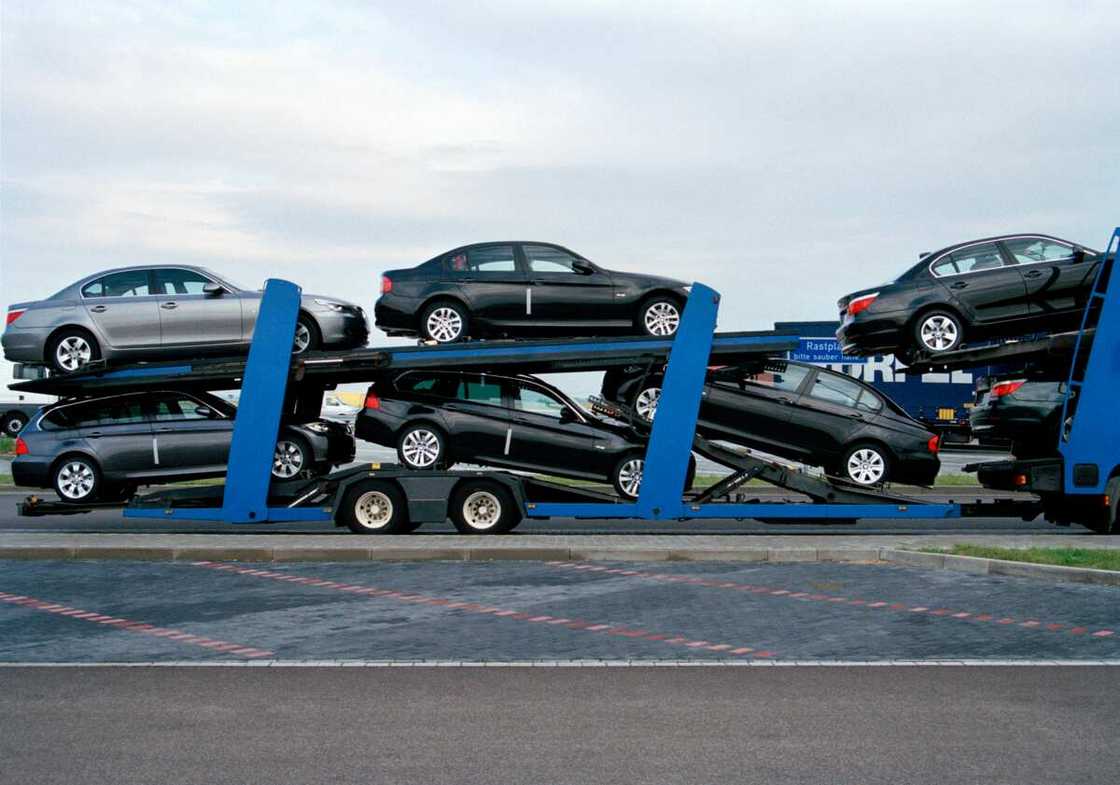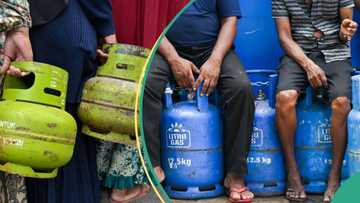Prices of Imported Vehicles Change as Customs Adjusts Exchange Rates; Imports Rise by 226.4 Per Cent
- Importers have adjusted the prices of imported used vehicles, citing continued changes in FX rates by the Nigeria Customs Service
- The importers said they would continue to make the changes as the customs keep adjusting FX rates
- Customs have adjusted foreign exchange rates about six times since February 2024, citing naira devaluation
PAY ATTENTION: The 2024 Business Leaders Awards Present Entrepreneurs that Change Nigeria for the Better. Check out their Stories!
Legit.ng’s Pascal Oparada has reported on tech, energy, stocks, investment and the economy for over a decade.
Importers of used vehicles across Nigeria have adjusted their prices following the volatile exchange rates in the country and the incessant adjustments of FX for cargo clearance by the Nigeria Customs Service (NCS).
Since February 2024, the NCS has adjusted exchange rates more than six times, with some happening within 24 hours.

Source: Getty Images
Importers give reasons for adjustments
Importers say the adjustments cause fluctuations in the prices of imported vehicles and make imports uncertain as they are unsure of the next move by the customs.

Read also
Naira gains against the dollar for 2 straight days in official market despite UK agency’s prediction
Checks by Legit,ng on some imported brands show that the cost of Toyota vehicles has skyrocketed.
Some dealers now quote the Toyota Camry 2006 model at almost N4 million against the N1.2 million quoted in 2022.
While Toyota Camry 1014 model sells for as much as N12,5 million as against the N5 million previously sold in 2002.
Toyota Sienna XLE 7 passengers, which sold for N5 million in 2022, now sell for N9 million.
The NCS has only announced a reduction in forex for goods clearance once the naira is appreciated against the dollar.
According to statistics, the total value of Nigeria’s used vehicle imports increased from N325.05 billion in 2022 to N1,063 trillion in 2023, an increase of 226.46% every year.
In the same period, the value of used vehicles brought into Nigeria spiked by N736 billion compared to the 2022 records, according to the National Bureau of Statistics (NBS) report on foreign trade for 2023.
The spike recorded in the period is due to the massive increase in vehicle imports for the second quarter of 2023, at N733 billion, representing 69% of total imports for 2023.
Nigeria’s used vehicle imports for Q1 2002 stood at N72.32 billion, a decline to N69.48 billion in the review year.
The value of vehicle imports rise
In the second quarter of 2023, there was an increase in vehicle imports from N96.76 billion recorded in 2022 to N733.91 billion.
In Q3 2023, the amount declined to N138.50 billion compared to N90.77 billion recorded in 2022.
Reports say that in the quarter of 2023, Nigeria imported used vehicles valued at N121.83 billion, which is almost the exact figure recorded in 2022 at N65.19 billion.
Experts say the naira devaluation and continued increase in FX rates will impact the prices of used vehicles in the country.
Nigeria heavily depends on used vehicles imported from Europe and the US.

Read also
After N106bn loss, Nigerian Breweries increases prices of Gulder, Star, others, second hike in 2024
Another report indicates that Nigeria’s used vehicle imports declined by 47% in 2022 due to the economic downturn.
The prices of used vehicles triple
In a previous report by Legit.ng, prices of foreign used cars, also known as "Tokunbo", have increased by as much as thrice in some regions, inflicting hardship on Nigerians and constraining the economy.
According to The Sun report, Vehicle dealers point out that the worrying development results from the naira's sharp fall amid market volatility.
Other contributing factors are hefty customs, levies, taxes, the Nigeria Customs Service's (NCS) VIN valuation policy, increased poverty, and diminished consumer purchasing power.
Nigeria Customs grants 90-day grace to Vehicle Importers
Meanwhile, Legit.ng earlier reported that the Nigerian Customs Service (NCS) had introduced a 90-day opportunity to adjust import duties concerning specific vehicle categories.
This adjustment process involved meticulously completing all importation paperwork and inspections to ensure compliance with the standards set by the federal government.

Read also
Cooking gas price hits new high, Nigerians react as report shows cheapest, costliest sates for LPG
This was because the Central Bank of Nigeria (CBN) announced that the exchange rate for computing customs duties at the nation's seaports was slashed by 1.9%.
PAY ATTENTION: Stay Informed and follow us on Google News!
Source: Legit.ng



